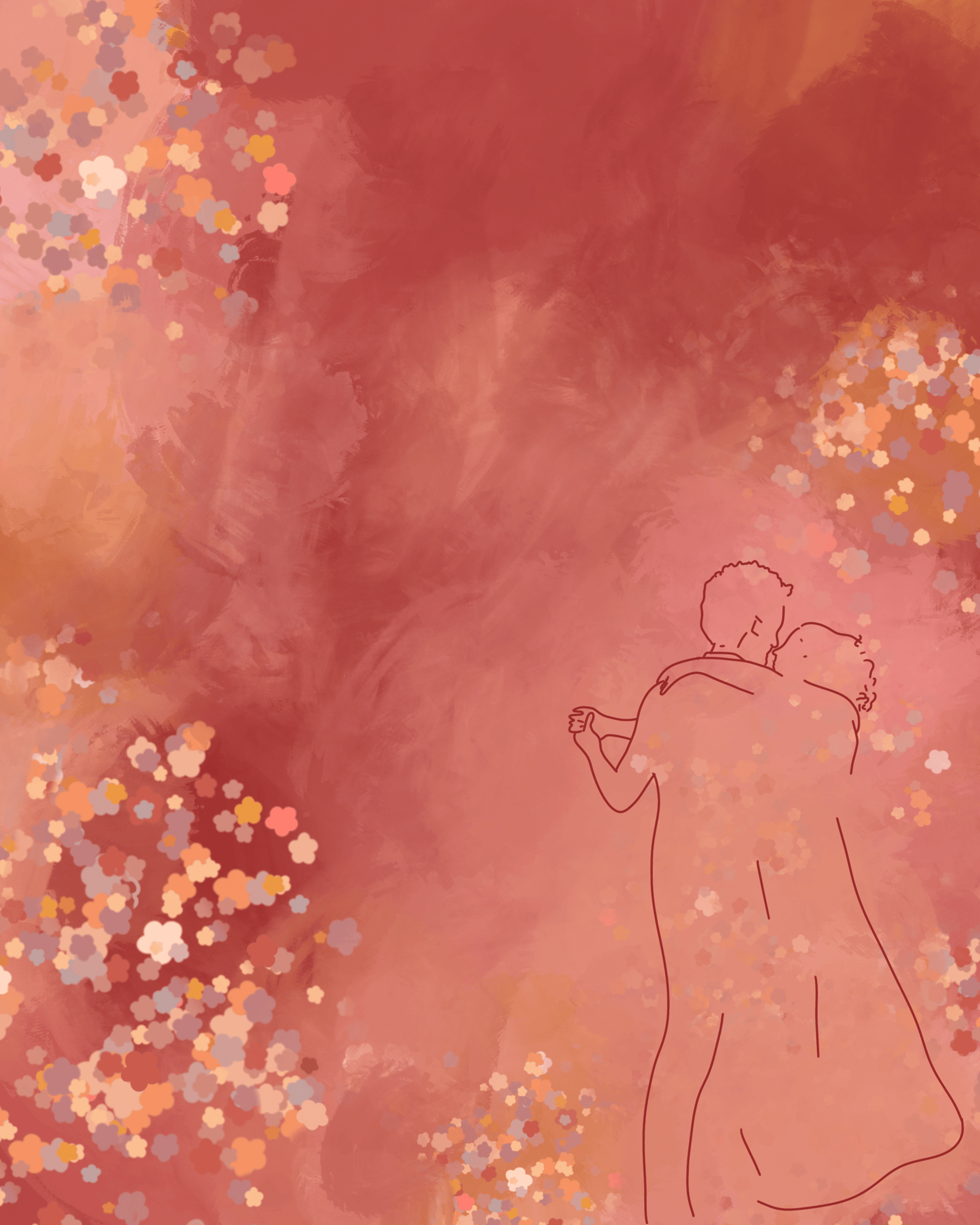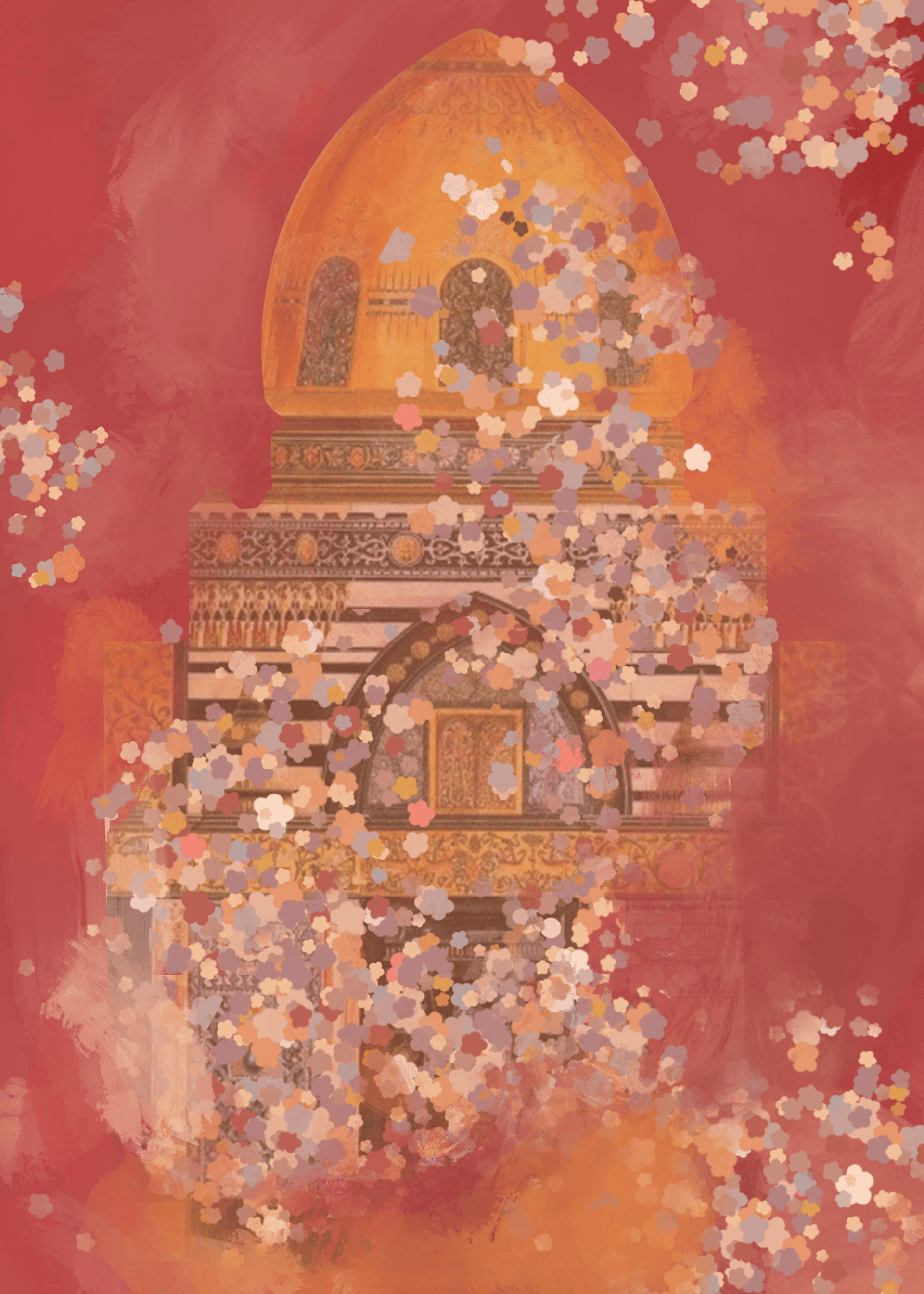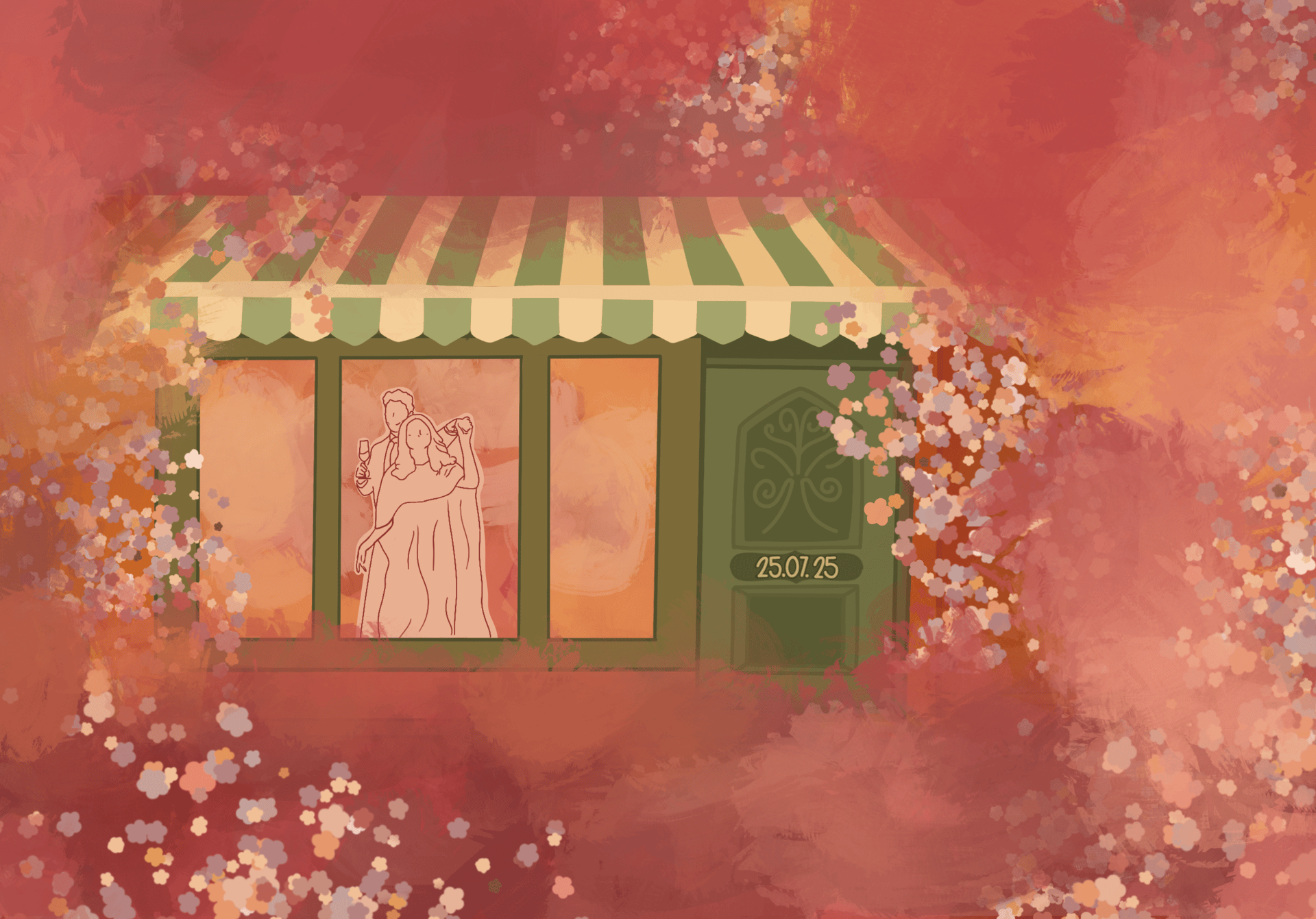
Wedding Traditions
Our marriage will be a blend of cultures, so our wedding will, of course, reflect that. while it will not be the fully traditional, big fat Arab wedding, we are so excited to share a few of the most important Arab wedding rituals and traditions with you.
SEE below for more information.
This is a safe space
(unless you're scared of drums)
So you might be thinking that we are including all this detail to prevent you from embarrassing yourself, doing cultural appropriation, ruining the wedding, the bride is crying, the aunties have you on their Hitlist, what a sad little life Jane etc
This could not be further from the case, this guide is here to:
(but ear protection will be provided because if you are on our guest list, you're probably at least slightly neurodivergent)
1- reassure you that we would love nothing more than for everyone to get involved, and
2 - to prepare you for some traditions which, tbh, can be intimidating even to the Arabs who are lowkey meant to be used to it by now

Mariam, the Bride's Sister, cried when she attended her first Zaffa because it was so loud and she had no idea what was going on... she was 10.
Section 1:The 'Zaffa'
The 'Zaffa' or 'Zaffe' is a procession where the bride and groom are accompanied into their wedding or reception by a group of drummers and sometimes bagpipers and/or traditional trumpet-like instruments. In Egyptian culture, it is performed at the first presentation of the newly married couple, so usually at the start of the reception. This will be the case at our wedding.
In levantine cultures, the Zaffa usually marks the moment where the groom and his whole family go to the bride's house to escort the bride and her family to the wedding venue.
Traditionally, the purpose of the Zaffa was to announce to the whole village that there was a newly married couple, hence why it is extremely loud. When the Royal Borough of Kensington and Chelsea are not in charge, neighbors and even random strangers are always encouraged to come dance and celebrate with the couple and their wedding party.
Thus, the Zaffa is, by nature, something that everyone is encouraged to take part in and dance with, regardless your own culture or even how well you know the couple, in this essay I will


We won't be having quite so many drummers as in this video, but this video showcase some of the classic rhythms and also outfits of Egyptian Zaffa drummers and musicians. They usually wear the 'tarboosh' (Fez) on their heads which stems back to the Ottoman Empire in Egypt.
There are some traditional Zaffa songs that you might hear some people in this video singing, and people come up and dance with the couple (which is totally acceptable)
Videos of similar Performances
Our Zaffa
The space at Maramia will be limited, so expect the few drummers we will have to still be very loud. The performance will not last more than 10-15 minutes. Earplugs will be made available to anyone who wants them.
Although dinner will follow the Zaffa, unlike with a traditional wedding breakfast - speeches - party wedding schedule, the fact that the evening will begin with the Zaffa will mean that you should consider the party to have started as soon as you arrive at Maramia!

What is Zaghroota (Ululation)?
Ululation, or Zaghroota, is A celebratory noise made by attendees at celebrations (mostly weddings, but also engagements, graduations etc).

Fun fact: this lady here is the Egyptian national meme/whatsapp sticker for celebrating something
You don't have to be Arab to do this, and in fact, the effect really hits best when there is lots of it going around. The Arab with the best zaghroota will win a prize on the day, so make sure to follow our handy tutorial below ;)
How do I do a Zaghroota?
1 - make a loud and high pitched 'OOO' sound
2 - quickly move your tongue from side to side or up and down
3 - cover your mouth bc no one needs to see that
4 - end it after a few seconds with a 'LEEE' sound

Video tutorial because we are 100% serious
Other things to know
Will I embarrass myself?
Any celebratory time, during any applause, and especially during the Zaffa, cake cutting, during the dancing or really any time except when someone is mid-sentence mid-speech. For the right effect though, if someone else does one, then you should join in! And with that in mind...
here is a video of the bride's father starting one off, and you can hear that loads of other people (mostly behind the camera) join in as well
You will certainly not embarrass yourself if you decide to pull out a zaghroota (within reason, see above, but you get the idea). This is because if one person does a Zaghroota, everyone else is pretty much guaranteed to join in.
When to do a zaghroota?

